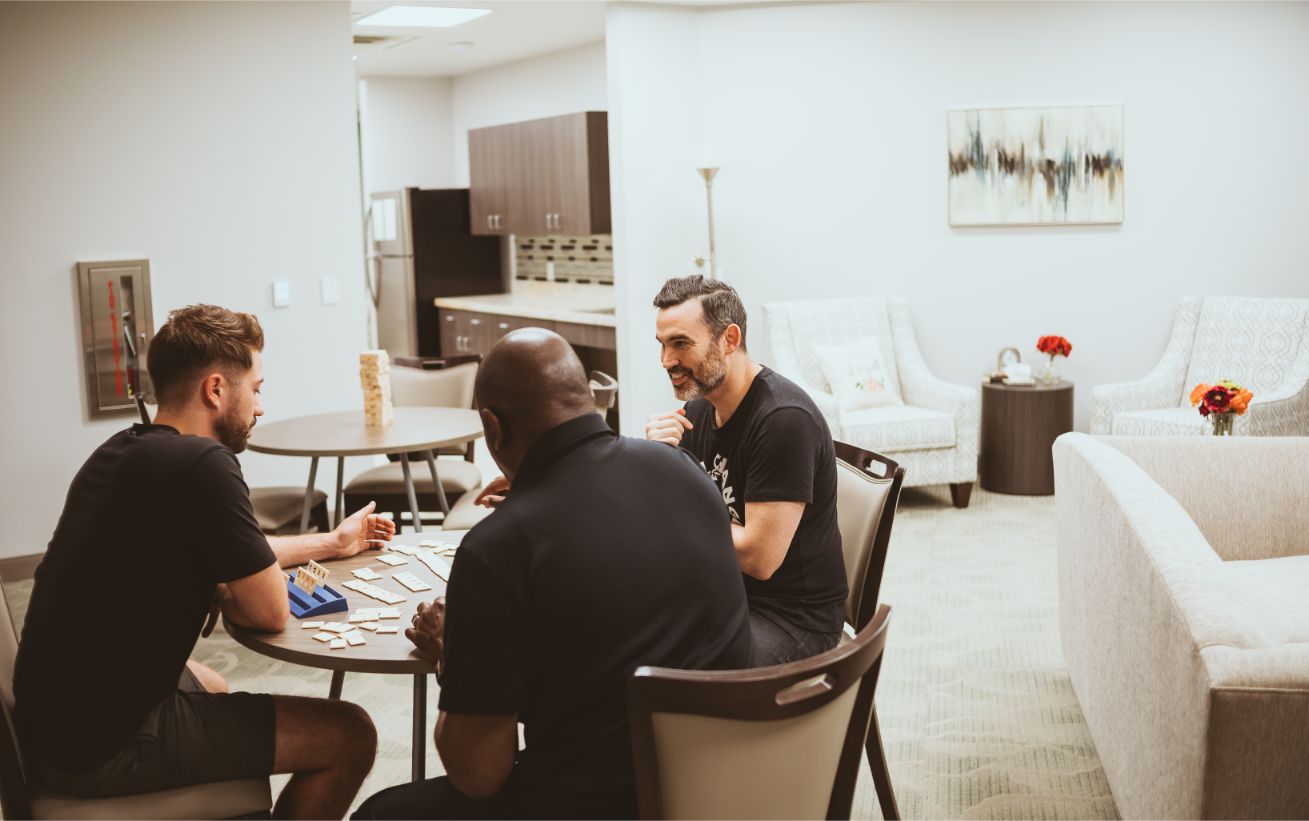Peer Recover Support
- What is Peer Recovery Support?
Peer recovery support allows people who have been successful in the recovery process help others experiencing similar situations. Through shared understanding, respect, and mutual empowerment, peer support helps people become and stay engaged in the recovery process and reduce the likelihood of relapse. Peer support services can effectively extend the reach of treatment beyond the clinical setting into the everyday environment of those seeking a successful, sustained recovery.
Peer recovery support can be instrumental in staying on track and making better choices to strengthen your recovery. A person who provides peer recovery support may be involved in the following:
- Advocating for people in recovery
- Sharing resources and building skills
- Building community and relationships
- Leading recovery groups
- Mentoring and setting goals
- Do Peer Recovery Support Services Work?
The roles of social support and mutual-help groups in promoting healthy outcomes among individuals with substance use disorder (SUD) suggests peer recovery support services may be helpful for individuals in recovery from substance use disorders.
Peer recovery support is non-clinical peer support, which can include activities that engage, educate and support the individual as they make the necessary changes to recover from substance use disorder.
Peer Recovery Support offers guidance through shared personal experiences of recovery from SUD. Peer support helps build skills, assisting and addressing the specific needs of someone with a substance use disorder. Early recovery can be difficult, peer support improves social connectedness and helps to identify new positive social environments.
- Why it works?
Peer Recovery Support can fill the gap that often exists in both formal and informal addiction treatment. Individuals with SUD learn to focus on recovery first and strive to rebuild and redefine their view of community and life.
The unique perspective and ability to empathize with those in treatment for substance use disorder is one of the main reasons that this type of support is so powerful and why it works.
Peer providers also often offer many non-clinical roles that might help support recovery activities, including but not limited to abstinence or reduced substance use, and may be an undervalued and underutilized resource that could be better used to help both the recovery supporter and the individual who is in treatment.
IN CONTEXT
These peer providers are becoming an increasingly important part of the treatment and recovery continuum, and could also help create an environment and community where recovery is supported and individuals are working towards a better community.
However, it is important for additional studies, randomized controlled trials and effectiveness trials, in particular, to be performed since the available data cannot be disaggregated in order to determine the causal connections between peer involvement and better outcomes and quality of life. Without more rigorous research of this kind that can provide more accurate estimates of the effects and mechanisms of peer support models, the potential value of peer support models may be undervalued and not widely adopted and implemented.
We Accept Insurance:
The cost of addiction treatment can prevent some people from seeking out the treatment they need. There are a variety of options that can help cover the cost of treatment, including:
- State and locally funded addiction treatment programs
- Substance Abuse and Mental Health Services Administration (SAMHSA) grants.
- Medicare and Medicaid
- S. Department of Veterans Affairs
Many treatment programs may cost-prohibitive for a large number of people. As a result, many people who may be ready to get help for their addiction put off treatment, which means that those people may decide to not get help at all. To make sure that treatment is attainable when it is needed, there are public assistance options that can offer these people the financial support they need to begin the recovery process.
Health insurance is not required to get the care you need for your addiction treatment. Even if you are insured, you may wish to pay cash for drug rehab instead of filing insurance claims and worrying about treatment authorization and coverage. The National Institute on Drug Abuse (NIDA) reports that 23.5 million people over the age of 12 needed treatment for a drug or alcohol abuse problem in 2009. Unfortunately, only 11.2 percent of these individuals sought treatment for their condition.
If you suffer from an alcohol or drug abuse issue, it’s important to get the help you need to live a healthy, well-balanced life. There is hope in the form of addiction treatment. Private pay rehab centers are located across the country, making high-quality drug abuse treatment an option for many individuals.
Outreach, screening, assessment and referral (OSAR) centers may be the first point of contact for people seeking substance use disorder treatment services. Texas residents who are seeking services and information may qualify for services based on need. OSARs are now located at local mental health authorities in all 11 Texas Health and Human Service regions. For immediate and confidential help, 24 hours a day, seven days a week, please call the OSAR LMHA in your region. Counties served by each OSAR are listed below the contact information in the list of OSAR LMHAs. You may also call or contact 211 Texas. Dial 2-1-1 or call 877-541-7905.
Please check with your provider for coverage.

